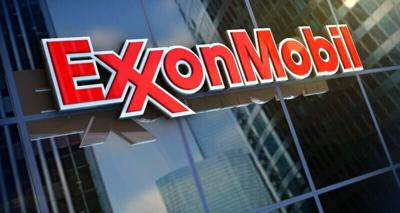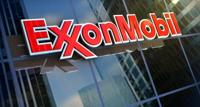
LAKE CHARLES, La. – ExxonMobil, in a federal court filing this month, seeks a ruling that it is not liable for alleged environmental damages to a Jefferson Parish property recently purchased by a Louisiana company.
Exxon Mobil Corporation filed its complaint November 5 for declaratory judgment in the U.S. District Court for the Western District of Louisiana, Lake Charles Division.
A declaratory judgment is a legally binding statement from a court that settles a dispute over legal rights and duties.
In its six-page filing, the oil giant argues it is not liable to defendant Mudd Family Partnership LLC based on the subsequent purchaser doctrine, and the absence of contractual privity or assignment of rights.
“An actual, concrete, and immediate controversy exists between the parties regarding their respective legal rights and obligations concerning the alleged environmental conditions on the Property,” the complaint states.
“Defendant maintains that ExxonMobil is responsible for alleged damages to the Property as a result of ExxonMobil’s predecessors’ operations conducted decades ago. ExxonMobil, by contrast, denies any legal obligation or liability to Defendant.”
Beginning in 1928, ExxonMobil’s corporate predecessors, Humble Oil and Refining Company and Exxon Corporation, along with multiple other entities, conducted certain oil and gas operations on immovable property located in Sections 11 and 14, Township 9 South, Range 4 West, Jefferson Davis Parish, Louisiana.
In 1973, the predecessors of ExxonMobil assigned their remaining leasehold interests in the property for development of oil and gas.
Neither ExxonMobil nor any of its predecessors or affiliates had any contract with Mudd Family Partnership related to the property, the complaint notes.
ExxonMobil argues that by July 1991, production on the property ceased and the last operative well – then operated by McGowan Working Partners – was plugged and abandoned pursuant to state conservation regulations.
Mudd acquired title to the property by way of two sheriff’s sales executed April 16, 2025.
“Thus, Mudd purchased the Property more than thirty-three (33) years after operations on the Property ended and more than fifty-three (53) years after ExxonMobil’s predecessor assigned all of its interests in the Property and related operations to another entity,” the complaint states.
ExxonMobil alleges Mudd contacted it on Aug. 18, 2025, seeking to hold ExxonMobil responsible for alleged environmental damage to the property as a result of the related operations.
Allegedly, Mudd proposed a settlement ranging from $3 million to $7 million.
“Although ExxonMobil denied, and continues to deny, any responsibility or liability to Defendant, in a good-faith effort to cooperate and promote transparency, ExxonMobil offered to help facilitate an assessment of the Property, including coordinating with potentially responsible parties and appropriate regulatory agencies,” the complaint states. “Defendant declined this offer.”
ExxonMobil argues that under Louisiana’s subsequent purchaser doctrine, a subsequent purchaser of property has no right to sue a third party for damage inflicted on the property before the sale in the absence of an “express assignment or subrogation of the right to sue from the owner of the property when the damage was inflicted.”
“The instruments by which Defendant acquired ownership of the Property do not include the required express assignment of the right to sue,” ExxonMobil’s filing states. “Additionally, Defendant has no contractual relationship or privity with ExxonMobil or its alleged predecessors and Defendant was never assigned a mineral lease or other contractual rights related to historical operations on the Property.
“Accordingly, Defendant has no right to assert contractual claims or remedies against ExxonMobil arising out of or relating to any alleged pre-acquisition operations.”
Liskow & Lewis in Lafayette, La., and New Orleans is representing ExxonMobil in the action.






